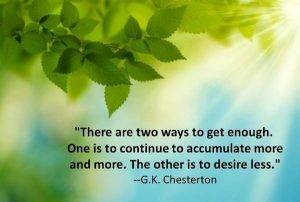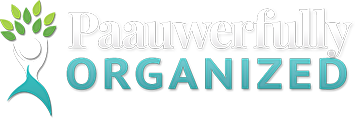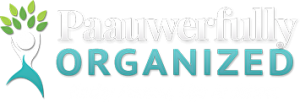Look at your calendar. See any “white space” there?
If you’re like many busy professionals, you are booked solid. In between appointments, you struggle to catch up with projects, reports, reading, phone calls, correspondence, e-mail, etc. With the pace you keep, you probably feel fatigued…like you’re running on empty.
“There cannot be a crisis next week. My schedule is already full.”
– Henry Kissinger
This can wreak havoc on your business or career, as well as your personal life. Consider these common symptoms of fatigue:
- Lack of motivation and energy
- Irritability
- Reduced productivity
- Reduced efficiency and effectiveness
- Reduced quality / increased mistakes
- Stressed relationships
You may be unaware of how run-down you’ve become. Perhaps you’ve bought into the old adage that “time equals money.” If spending more time at the office equated to making more money, we could all retire early!
By now you’ve figured out that more time at the office does not necessarily equate to more or better results. In fact, it often means fewer results and more mistakes.
The vast majority of my clients complain of having too little time, leaving them feeling depleted, stressed, frustrated, and pulled in every direction. Often, the first thing we work on together is creating something called “margin.”
What is margin?
“Margin is the space that exists between ourselves and our limits. It is the amount allowed beyond that which is needed. It is something held in reserve for contingencies or unanticipated situations. Margin is the gap between rest and exhaustion, the space between breathing freely and suffocating.”
– Dr. Richard Swenson
Dr. Richard Swenson, author of Margin: Restoring Emotional, Physical, Financial, and Time Reserves to Overloaded Lives, tells us that we create margin by building these four things into our lives:
- Simplicity
- Contentment
- Balance
- Rest
Seek Simplicity
 This week is National Clutter Awareness Week–a great opportunity to simplify your life by reducing the clutter–including possessions, activities, and relationships.
This week is National Clutter Awareness Week–a great opportunity to simplify your life by reducing the clutter–including possessions, activities, and relationships.
To simplify your life, become crystal clear about your goals, and then do the following:
- Identify what you are willing to take on in order to reach your goals.
- Identify what you are willing to let go of.
- Identify activities that are all-consuming but not necessarily important to you. In this case, less is more–doing less of what is not important enables you to do more of what matters most.
- Let go of relationships that do not enhance your life. Relationships can be clutter, too!
- Let go of possessions that do not enhance your life on a regular basis–things that take up space, require maintenance, and make decision-making more complicated. For tips on how to make decisions, register for my free Buried in Paper webinar.
- Let go of important tasks that someone else can do by delegating them.
- Let go of petty annoyances. Make a list of 10 things in your life that bother you. Then give yourself a month to fix it, clean it, toss it, or let go of it! For a deeper dive, check out my RAM Dump exercise.
- Let go of the past. Imagine where you want to be in the future and move toward it.
“It is my observation that too many of us are spending money we haven’t
earned to buy things we don’t need to impress people we don’t like.”
–Ken Blanchard
Cultivate Contentment
 Contentment is something we learn. It is a relative state. Comparing is the enemy of contentment. “Having it all” may not be in your best interest!
Contentment is something we learn. It is a relative state. Comparing is the enemy of contentment. “Having it all” may not be in your best interest!
Consider these questions when making decisions about activities, purchases, or relationships:
- Will this activity enhance my life?
- Will this purchase add meaning and fulfillment to my life a month from now? How about a year from now? If I don’t purchase this, will I regret it later? If I decide to purchase this later, will it still be available?
- Will this relationship move me toward or away from who I want to be and what I want to do or have in my life?
“A calm and modest life brings more happiness than the pursuit of success combined with constant restlessness.” -Albert Einstein
Bring Balance
 The way you use your time reflects the way you live your life. Life is like a buffet line — our plates fill up sooner than we realize. We need to learn how to say no. NO is a complete sentence. If you need help with this, check out my blog, The NOT To-Do List.
The way you use your time reflects the way you live your life. Life is like a buffet line — our plates fill up sooner than we realize. We need to learn how to say no. NO is a complete sentence. If you need help with this, check out my blog, The NOT To-Do List.
Finding balance is not a state we can get to or arrive at because it is always in motion. Balance is dynamic. It only exists in the midst of action. We are moving toward balance or away from it. Balance requires consistent, conscious, and controlled motion. Try balancing on one foot. Notice the fine adjustments you need to make in the foot and body in order to maintain equilibrium.
“Much of our pain in life comes from the sense that we’re succeeding in one role at the expense of other, possibly even more important, roles. Success in one role can’t justify failure in another. Business success can’t justify failure in a marriage; success in the community can’t justify failure as a parent. Success or failure in any role contributes to the quality of every other role and life as a whole.”
—Stephen Covey, The Seven Habits of Highly Effective People
Being out-of-balance is the condition of being driven by circumstances without a sense of any choice. When choice is gone, balance is gone, and with it goes the possibility of personal fulfillment.
To create balance in your life, consider the following:
- Do you feel at choice in your life, or do you allow victim language such as I can’t…, I gotta.., I have to…, and I should… to dictate your life?
- Schedule a weekly planning time by yourself to plan the coming week, based on what you choose. While you are doing your planning, remember that every time you say “yes” to someone or something, you are also saying “no” to someone or something else.
- Identify the key relationships or roles in your life. What activities do you choose for the coming week to nurture each of these relationships or roles that are important to you?
- Begin your weekly planning by choosing activities that nurture your physical, spiritual, mental, and social well-being. Caring for yourself first will help you be more available to serve in each of your chosen roles without feeling angry or resentful.
- For a more in-depth look at the weekly planning process, I invite you to access my free webinar, Managing Priorities.
Restore Rest
Can you imagine what music would be like with no rests? Try humming a familiar tune without honoring the rests, and you’ll soon recognize their value.

"If you're burning the candle at both ends,
you're not as bright as you think you are."
–Anonymous
Wayne Muller, author of Sabbath: Restoring the Sacred Rhythm of Rest, has the following to say about rest: “In the relentless busyness of modern life, we have lost the rhythm between action and rest. The busier we are, the more important we seem to ourselves and, we imagine, to others. To be unavailable to our friends and family, to be unable to find time for the sunset (or even to know the sun has set), to whiz through our obligations without time for a single mindful breath–this has become the model of a successful life. Because we do not rest, we lose our way. We miss the compass points that show us where to go, the nourishment that gives us succor, the quiet that gives us wisdom.”
 Cheryl Richardson, author of Take Time for Your Life, has identified the enemy of rest — adrenaline: “The increased speed by which we live has contributed to a society suffering from adrenaline overload more than information overload. When we use adrenaline as our main source of fuel, our body’s adrenal system — the fight-or-flight response that is supposed to alert us to and prepare us for danger — never has a chance to rest. This hyper-vigilant state of fight-or-flight eventually makes it physiologically difficult to slow down.”
Cheryl Richardson, author of Take Time for Your Life, has identified the enemy of rest — adrenaline: “The increased speed by which we live has contributed to a society suffering from adrenaline overload more than information overload. When we use adrenaline as our main source of fuel, our body’s adrenal system — the fight-or-flight response that is supposed to alert us to and prepare us for danger — never has a chance to rest. This hyper-vigilant state of fight-or-flight eventually makes it physiologically difficult to slow down.”
If you experience difficulty relaxing when you have free time, your body is probably so accustomed to running on adrenaline that it doesn’t know how to derive its fuel from healthier sources. It’s time to start practicing new behaviors that reduce your reliance on adrenaline.
Restore rest in your life by trying these ten tips:

- Identify one day a week on which you choose not to conduct any business — no professional meetings or calls, correspondence, checking for messages or e-mail, etc. Many people choose Saturday or Sunday for their day of rest.
- Plan something to rejuvenate yourself — perhaps a massage, bubble bath, listening to relaxing music, or losing yourself in a good book.
- Breathe deeply. When running on adrenaline, we have a tendency towards shallow breathing. When we deprive our bodies of oxygen, we experience such things as cold hands, high blood pressure, and feeling anxious.
- Take an early afternoon nap. Daniel Pink has just published a book called When: The Scientific Secrets of Perfect Timing. In his book, he cleverly outlines the 5 Secrets to Taking the Perfect Nap.
- A brisk walk is one of the best things you can do to reduce stress and restore health to your adrenal system. Skip strenuous exercise after 5 PM.
- Limit your sugar intake, and avoid heavy meals late at night. Stop caffeine intake after 2 PM.
- Stick to one glass of wine with dinner and avoid all alcohol close to bedtime. Although alcohol may relax you or make you feel sleepy, it can interfere with REM sleep, which is important to getting restful sleep, learning new information, and maintaining important neural pathways.
- Determine the number of hours of sleep you need for optimal functioning. Create a plan to help you get the rest you need.
- Cut out all screen viewing – computers, tablets, smartphones, television — within one hour of bedtime. The light interferes with melatonin production, which is a known sleep aid.
- Jot down your to-do list before going to bed so you don’t lay awake stressing about something that needs to be done.
What needs to shift in your life in order to create white space in your life?
If you’d like support cultivating simplicity, contentment, balance and rest, let’s schedule a no-cost, no-pressure Discovery Call today. Together we can create some white space in your life.
Additional Resources:
- Blog: RAM Dump
- Blog: Overcome Procrastination
- Blog: How I Discovered My Purpose
- Blog: The NOT To-Do List
- Guide: Cultivating Happiness: Living Life on Your Terms
- Webinar: Managing Priorities
- Webinar: Buried in Paper











Kathy, I love your insights here, all spot on! I especially love “Seek Simplicity.” In recent journaling, I pondered my own guiding principles. At different stages of my life, different guiding principles have been my anchor. Today what works for me is, “If it’s not fun, don’t do it.” Since I have acknowledged that principle, I feel time abundant, and I look forward to engaging with the people, attending the meetings, and delving into the tasks on my daily calendar. Ahhhhh, breathing space!
Thank you, Nina. I have found that as I get older (I’ll be 59 in less than two months!), simplicity has become more important to me, too. Life can be so complicated, and it doesn’t have to be. It’s a choice! I’m so glad you follow guiding principles that help you to enjoy life at the pace you choose.
Dear Kathy,thank you so much. I love your blogs and the very helpful advice. I really appreciate your time to write all these to help others. They are very precious.
I have been reading your blogs and each one is such high personal value to me – they almost leave me breathless with their relevance to me.
Jo, thank you for your kind feedback. The best “pay” I receive for writing my free weekly blogs is knowing that my messages touch people’s lives in a positive way.